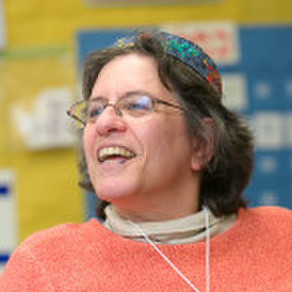Summer Institute Courses
Join us at Institute July 25- August 8
Registration is open!
Course teachers and specialists provide new perspectives and flavors to the learning we pursue together during the Summer Institute. They reflect the diversity of our community, representing a wide range of ages, professions, and home communities, and they are encouraged to participate fully in all Institute programming throughout the two weeks.
Summer Institute Courses meet Monday through Friday for 1- 1.5 hour sessions in the morning and the evening. Our Liturgist-in-Residence, Timbrel Artists-in-Residence, and our Hollandar Social Justice Fellow may offer sessions on the weekends, as well. Learn about each presenter’s offering below. All times are in EDT.
Email office@havurah.org with any questions.
Learn about our Featured Presenters…
Liturgist-in-Residence: Devon Spier– Trashing Platitudes, Recycling Fears: Ritualizing Humour and Irreverence in the Pandemic

Devon will be teaching four workshops throughout the two weeks; Ritualizing Humour and Irreverence, Reducing Panic, Re-using Platitudes, and Re-cycling Fear.
CLICK HERE TO LEARN MORE ABOUT DEVON’S WORKSHOPS.
Devon will be teaching (EDT):
Tuesdays- 1 pm
Thursdays- 1 pm
Note- Devon’s workshop on August 5th has a capacity of 15.
Hollander Fellow: Erica Riddick -Bilha & Zilpah: Silent Voices of Sister Wives & Concubine Matriarchs
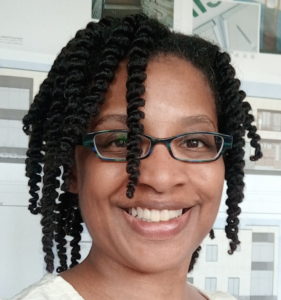
Eric will be teaching three workshops throughout the two weeks; The Canaanite Within Our Midst Text Study, Bilha & Zilpah’s Voice: Naming, and Shema Yisrael: Hearing Bilha & Zilpah’s Voices through Creative Midrash.
CLICK HERE TO LEARN MORE ABOUT ERICA’S WORKSHOPS.
Erica will be teaching (EDT):
Monday, July 26 @ 2:30 pm
Thursday, July 29 @ 2:30 pm
Sunday, August 1 @ 1:00 pm
Timbrel Artist-in-Residence: Ava Sakaya Rosen– Storytelling Through Bookmaking

Erica will be teaching several workshops throughout the 2 weeks focusing on Storytelling Through Bookmaking.
CLICK HERE TO LEARN MORE ABOUT AVA’S WORKSHOPS.
Ava will be teaching (EDT):
Day- Monday, July 26 @ 11am
Day- Wednesday, July 28 @ 11am
Day- Friday, July 30 @ 11am
Day- Monday, August 2 @ 11am
Day-Wednesday, August 4 @ 11am
Capacity: NA
Timbrel Artist-in-Residence: Galeet Dardashti- Integrating Sephardi/Mizrahi Vocal Repertoire Artfully and Respectfully

Galeet will be teaching workshops throughout the 2 weeks focusing on Integrating Sephardi/Mizrahi Vocal Repertoire Artfully and Respectfully
CLICK HERE TO LEARN MORE ABOUT GALEET’S WORKSHOPS.
Galeet will be teaching (EDT):
Day- July 28 @ 2:00 pm
Day- August 3 @ 5:00 pm
Day- August 4 @ 2:00 pm
Capacity: 25
Learn about our Teachers…
(A FULL ACCESS Ticket is required for any of the courses below)
Monday and Wednesday Morning Classes
(all times in EDT)
Creation in Twelve Five-minute Hours, Yavni Bar-Yam
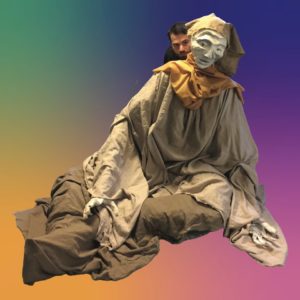
We will each draw, write, move, compose melodies and even puppeteer in five minute spurts in response to playful prompts based on a midrash about the twelve hours of Adam’s creation. Come get creative together!
- Arts, Music, Performance
- Meditation and Movement
- Suited for Families
- Suited for Teens
Capacity- NA
Yavni will be teaching:
Mondays: 10 am- 11 am
Wednesdays: 10 am – 11 am
Yavni is a puppeteer, which means he doesn’t have to choose between being a performing, visual, and literary artist. He has performed traditional Italian masked comedy in Bangkok, Czech revolutionary theater in New York, and street clowning in Israel. He has devised rod puppetry accompaniments to contemporary classical song cycles, built large-scale parade puppets for Ashkenaz Festival Parade 2018 and created video found-object-puppetry-of-the-absurd as part of Hermit Appendage. He was the 2016 Timbrel Artist in Residence at NHC Summer Institute, where he was fortunate to work with the best company of wilderness shadow puppeteers.
Queering Judaism: Homosexuality in Jewish Tradition, Dale Rosenberg

Acceptance of queer Jews within synagogues and other Jewish institutions has risen dramatically over the past 30 years. Out lesbian and gay Jews, once unwelcome in all but a few gay synagogues in urban areas, now find a home in shuls throughout the country. All the non-Orthodox rabbinical seminaries ordain openly LGBTQ Jews and all the American Jewish movements deal in some way with same sex relationships. This class looks at the history and asks how and why the Jewish view of homosexual behavior and gay and lesbian identified people changed over time.
What have the Jewish views of homosexuality been over time? What do the Tanakh and the Talmud have to say about gender identity and sexual orientation? What stand have the majority of American Jews taken on issues of civil rights for LGBTQ people? Which Jewish organizations have been more inclusive and which have stood against queer inclusion? How have Jewish tradition, ethics, and theology informed their positions? What is life like for gay and lesbian Jews in the United States now, and how does that compare to other countries and other times?
Let’s study together to start answering these questions. Please note that, although I will tangentially mention bisexuality and issues of trans, gender queer, and non-binary identities, the focus of the course will be on Jewish response to lesbian and gay people and same-sex sexuality.
- Contemporary Issues
- History and Culture
- Text Study for Everyone
Capacity- NA
Dale will be teaching:
Mondays: 10 am- 11:30 am
Wednesdays: 10 am – 11:30 am
Dale Rosenberg is a Jewish educator who teaches across the lifespan. She works as the Director of Learning and Engagement at Congregation Beth Israel in Worcester, MA. In this position she runs the religious school, plans adult education and other programming, and manages synagogue communications. Dale is also an adjunct lecturer at Keene State College in New Hampshire.
The Ethics in “Ethics of the Fathers”, Joseph G. Rosenstein

This course will focus on the approximately 40 ethical teachings that appear in Pirkei Avot, usually translated as Ethics of the Fathers. We will read and discuss each of these teachings and how we can apply them in our lives. We will start with an overview of Pirkei Avot and spend one session on each of the following three categories of ethical teachings: relationships with other people, relationships with God, and personal growth.
- Religious Life and Spirituality
- Text Study for Everyone
- Suited for Teens
Capacity- 23
Joe will be teaching:
Mondays: 11 am- 12:30 pm
Wednesdays: 11 am- 12:30 pm
Joe Rosenstein is a founder and former chair of both the NHC and the summer Institute, and has taught at many Institutes and NHC retreats. He is the author of Siddur Eit Ratzon and Machzor Eit Ratzon (newsiddur.org), Memorable Verse in the Torah (memorableverses.com), and a forthcoming book on Pirkei Avot. He was a math professor at Rutgers for almost 50 years. He and his wife Judy have five daughters and 12 grandchildren and three small dogs.
Seeking in the Company of Others: The Wisdom of Group Spiritual Direction, Roslyn Weiner
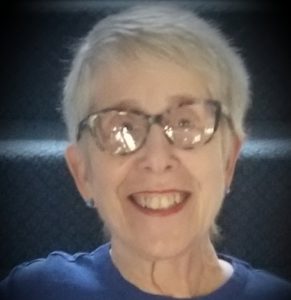
Spiritual direction is a practice that calls our attention to the presence of the Sacred in our everyday lives. The process invites us to get in touch with our own inner wisdom with the support of others on the same quest. Group members listen to each other without imposing themselves and without feeling obligated to fix something for someone else. The process blends poetry, liturgy and questions with opportunity for contemplation and discernment. There is no pressure to speak. The received blessing is the generous space for spiritual curiosity and the experience of being witnessed in sacred discovery.
- Religious Life and/or Observances
- Suited for Teens
Capacity- 15
Roslyn will be teaching:
Mondays: 10 am- 11:30 am
Wednesdays: 10 am – 11:30 am
Roslyn Weiner has been offering Individual and Group Spiritual Direction in the Boston area for 18 years. She is a member of Temple Emanuel of Newton and the Jewish Community of Amherst. She is eager to share the practice of spiritual direction with the Havurah Institute community. She notes with gratitude that on Zoom during the pandemic, participants have successfully co-created meaningful, sacred, reflective space.
Monday and Wednesday Evening Classes
(all times in EDT)
Oh the Places You’ll Go! The Book of Daniel, Aliza C.P. Arzt
The book of Daniel is rarely studied partly due to the fact that half of it is in Aramaic. We will look at texts from the book of Daniel through a variety of different lenses including fairy tales, other Biblical stories, history, prophecy, Shabbat z’mirot, and language (Aramaic) learning. Daniel is set in a time of great upheaval for the Jewish people, and was actually written in a different time of great upheaval. Together we will learn how those from both times coped with the events of their present, past and future and we’ll also learn a little Aramaic together. Most texts will be studied in English with accompanying texts in the original Hebrew and/or Aramaic. The final session that include an opportunity to learn how the Aramaic in Daniel works that will be more accessible to those with some knowledge of Hebrew.
- Intermediate Text Study
- Suited for Teens
Capacity- 20
Aliza will be teaching:
Mondays- 8- 9:30 pm
Wednesdays- 8- 9:30 pm
Aliza Arzt is a home care speech therapist and long-time member of Havurat Shalom of Somerville MA. She loves researching questions about Biblical Hebrew and often discovers new insights. In her free time in this new world she enjoys making pottery, keeping geckos, and reading cool stuff there was no time for before.
הכביכול: Finding an Emotionally Vulnerable God, Joey Glick
 כביכול (kiv’yachol) is a word used by traditional commentators to introduce theologically audacious visions of the Divine. Often, the word opens stories of a God with a body, emotions, struggles or other “human-y” qualities. This course will look at a variety of Jewish sources that describe an emotionally vulnerable God. Ranging from the Talmud, to Hasidic sermons to contemporary queer and disability theologies, these כביכול texts imagine a Divine who feels sadness, alienation, confusion and joy in the context of a rocky and loving relationship with humanity. In each of the four sessions, we will explore these images of God and put them into conversation with our own views of the Divine.
כביכול (kiv’yachol) is a word used by traditional commentators to introduce theologically audacious visions of the Divine. Often, the word opens stories of a God with a body, emotions, struggles or other “human-y” qualities. This course will look at a variety of Jewish sources that describe an emotionally vulnerable God. Ranging from the Talmud, to Hasidic sermons to contemporary queer and disability theologies, these כביכול texts imagine a Divine who feels sadness, alienation, confusion and joy in the context of a rocky and loving relationship with humanity. In each of the four sessions, we will explore these images of God and put them into conversation with our own views of the Divine.
- History and Culture
- Spirituality
- Text Study for Everyone
- Suited for Teens
Capacity- 12
Joey will be teaching:
Mondays- 8- 9:00 pm
Wednesdays- 8- 9:00 pm
Joey Glick is a proud native of Pittsburgh, PA, an alum of Colorado College, the Graduate Theological Union, and the Wexner Graduate Fellowship and a current rabbinical student at Hebrew College. Before starting rabbinical school, Joey served as the interim assistant chaplain and director of Jewish life at Vassar College. Joey is passionate about inter-religious dialogue, old time fiddle music, and his hometown Pittsburgh Pirates.
Immunology of the Jews, Solomon L. Mowshowitz

There are surprising parallels between the workings of the human immune system and those preserving the continuity, maintenance and integrity of Jewish identity. We’ll discuss concepts including “Self and Nonself,” “Innate and Acquired Immunity,” “Danger and Non-Danger,” “Mimicry,” “Tolerance,” “Checkpoints,” “Clonal Selection,” Somatic Hypermutation,” “Adjuvants,” and even “Original Antigenic Sin.” Immunology is about you and everything else; there’s not much of you, and a lot of everything else; this is the Jewish predicament, too. Along the way we might talk about a few famous Jewish Immunologists, too.
- Contemporary Issues
- History and Culture
- Suited for Familie
- Suited for Teens
Capacity- 20
Solomon will be teaching:
Mondays- 8- 9:00 pm
Wednesdays- 8- 9:00 pm
Mosh is a past Chair of the NHC who loves teaching and learning at the Institute. For many years, he taught an advanced course in Immunology at Columbia University.
Tuesday and Thursday Morning Classes
(all times in EDT)
Hebrew Letters: Forms, Squiggles, Crowns, Briah Cahana
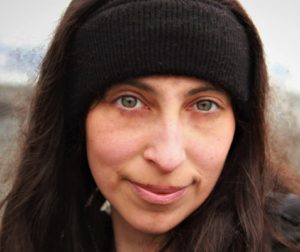 Traditionally, the Aleph Bet is believed to be the way G-d created the world. Each curve and line is intended to be there with precision. There are mounds and mounds of meaning behind each stroke and in these classes we will get to explore the significance written into these letters and into the creation of the world. There will be opportunities for people to study writing some of the letters as well!
Traditionally, the Aleph Bet is believed to be the way G-d created the world. Each curve and line is intended to be there with precision. There are mounds and mounds of meaning behind each stroke and in these classes we will get to explore the significance written into these letters and into the creation of the world. There will be opportunities for people to study writing some of the letters as well!
-
Arts, Music, Performance
-
Religious Life and/or Observances
-
Spirituality
- Suited for Teens
Capacity- 40
Briah will be teaching:
Tuesdays- 11 am- 12 pm
Thursdays- 11 am- 12 pm
Briah Cahana is in the middle of her rabbinical training at Yeshivat Maharat in New York. She comes to this path after receiving an M.A. at McGill University in Biblical Interpretation and working as a doula and soferet. She loves finding the pearls of wisdom in our ancient texts and rituals and finding ways in community to breathe new life into it all.
Can Jews Agree on a Creed?, Susan Gulack
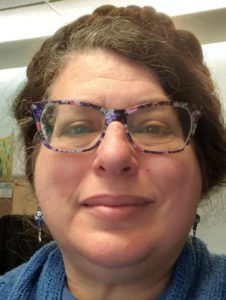
What does Judaism say a Jew must believe? Do we agree on anything? We will explore traditional formations and work on forming our own Creed Statement.
- History and Culture
- Religious Life and/or Observances
- Text Study for Everyone
- Suited for Teens
Capacity- 40
Susan will be teaching:
Tuesdays- 10 am- 11:30 am
Thursdays- 10 am- 11:30 am
Susan Gulack has been a long time havurahnick and learns from every time she teaches. For the last 20 years she has served as a chaplain in 3 prisons and a psychiatric hospital, while raising 2 young men. She loves learning and knitting and many other creative endeavors.
Theosis Through Works of the Law, Jonah Chanan Steinberg
 Say what? Well, ‘theosis’ may sound like a disease, but perhaps it’s one we have in the best way: the experience or endeavor of taking part somehow in the Divine. And ‘works of the law’ is a term in early Christian sources that denotes (sometimes derogatively) the particulars of practice with which we Jews so often are absorbed – i.e. Mitzvot. So: Taking Part in the Divine by Way of Mitzvot – which turns out to be a huge topic of contention between early Church Fathers and early Rabbis, and an opportunity to see these sibling/rival traditions in dialogue and argument with one another in their formative sources. That’s what we’ll see, in participatory sessions of paired learning alternating with group conversation, with interlinear source-sheets allowing us all to be on the pages together – truly Advanced Text Study and Text Study for Everyone. “Who is wise? One who learns from everyone” – and sometimes the arguing sources of rival traditions can help us understand better what each, including our own, is trying to say.
Say what? Well, ‘theosis’ may sound like a disease, but perhaps it’s one we have in the best way: the experience or endeavor of taking part somehow in the Divine. And ‘works of the law’ is a term in early Christian sources that denotes (sometimes derogatively) the particulars of practice with which we Jews so often are absorbed – i.e. Mitzvot. So: Taking Part in the Divine by Way of Mitzvot – which turns out to be a huge topic of contention between early Church Fathers and early Rabbis, and an opportunity to see these sibling/rival traditions in dialogue and argument with one another in their formative sources. That’s what we’ll see, in participatory sessions of paired learning alternating with group conversation, with interlinear source-sheets allowing us all to be on the pages together – truly Advanced Text Study and Text Study for Everyone. “Who is wise? One who learns from everyone” – and sometimes the arguing sources of rival traditions can help us understand better what each, including our own, is trying to say.
- History and Culture
- Religious Life and/or Observances
- Spirituality
- Text Study for Everyone
- Advanced Text Study
Capacity- 24
Jonah will be teaching:
Tuesdays- 11 am- 12:30 pm
Thursdays- 11 am- 12:30 pm
Rabbi Jonah Chanan Steinberg, Ph,.D. has taught at JTS; RRC; AJU; and Hebrew College, where he received his rabbinic ordination from senior colleagues. He is now a Jewish Chaplain at Harvard and Director of Harvard Hillel. Jonah enjoys making the sources of our tradition accessible and engaging through participatory sessions that are satisfying to veteran learners and welcoming of newcomers.
Inspirational Jewish Storytelling, Eden Wofsey
 ‘Ayzehu Chacham?’, ‘Who is wise?’. We all have inner wisdom, and wisdom is revealed to us in many different ways, through our tradition, our teachers, our experiences, and through interacting with the natural world. ‘Who is wise?’ What a beautiful question. Pirkei Avot answers by saying ‘Halomed Mikol Adam’, ‘ One who learns form everyone’. What better way to learn from another person,be they contemporary or historic, well known or hidden, or even real or imagined than through learning the stories about their actions and their lives?
‘Ayzehu Chacham?’, ‘Who is wise?’. We all have inner wisdom, and wisdom is revealed to us in many different ways, through our tradition, our teachers, our experiences, and through interacting with the natural world. ‘Who is wise?’ What a beautiful question. Pirkei Avot answers by saying ‘Halomed Mikol Adam’, ‘ One who learns form everyone’. What better way to learn from another person,be they contemporary or historic, well known or hidden, or even real or imagined than through learning the stories about their actions and their lives?
Stories contain the deepest wisdom. Thinking about our stories, and studying the stories taught by or lived by inspirational people, can give us strength, courage, and perspective as we go through our lives.
What are your favorite stories? Which stories enliven you and inspire you?
Learn how to identify, think about, and tell stories that contain insight, wisdom and humor. The stories we love tell us what we care about the most. Sharing these stories can connect us to others in real and meaningful ways.
Join us to learn stories and storytelling and to identify your strengths and interests as a storyteller and teacher.
There is always a place for a good story. One who can fill that place gives a gift to the world.
- Arts, Music, Performance
- Religious Life and/or Observances
- Spirituality
- Suited for Teens
Capacity- NA
Eden will be teaching:
Tuesdays- 10 am- 11:30 am
Thursdays- 10 am- 11:30 am
A proud native of Colorado who now makes her home in Brooklyn, New York, Eden Wofsey is a storyteller and a teacher of storytelling and Chassidut, as well as a practicing dentist.
Having studied in Colorado, New York and Israel, she was first introduced to Chassidic storytelling at the Carlebach Shul in Manhattan and is a graduate of the Maggid Training Program led by Yitzchak Buxbaum and Carole Forman.
Recently she has been leading Thursday Night Storytelling through the Park Slope Jewish Center of Brooklyn, a program designed to facilitate the sharing of traditional Jewish wisdom stories and personal stories that may provide inspiration during the time of Covid-19.
Tuesday and Thursday Evening Classes
(all times in EDT)
A Different Path Through the Jewish Yearly Cycle, Stephen Eisdorfer
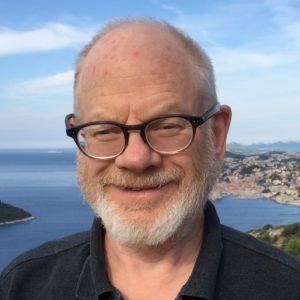
We will take a different path through the Jewish yearly cycle, focusing holidays that are half-forgotten, neglected, or ambiguous. We will consider their origins and practice and their implications for modern Jewish life: 3 Tishrei (the fast of Gedaliah); 8 Tevet (a day of mourning for the miraculous translation of the Tanakh into Greek); 20 Sivan (a fast day “for all generations” mourning the destruction of the Jewish community of Blois in 1171 and the Chmelnitsky massacres in 1648-49); and American Thanksgiving. We will proceed through close reading of ancient and modern texts, group discussion, and hevrusa in breakout groups.
- Contemporary Issues
- History and Culture
- Religious Life and/or Observances
- Text Study for Everyone
- Suited for Teens
Capacity- 24
Stephen will be teaching:
Tuesdays- 8 pm- 9:30 pm
Thursdays- 8 pm- 9:30 pm
Steve Eisdorfer is a graduate of Haverford College and Harvard Law School and a longtime member of the Highland Park Minyan. He is an experienced teacher. Among other things, he has taught two previous classes at the NHI focusing on the interaction between halacha and modern culture, broadly understood.
When There Are Too Many Goodbyes – Jewish Wisdom for Finding Hope and Healing Amidst Death and Dying, Ilan David Glazer

On Rosh Hashanah and Yom Kippur, we wonder and pray “Who will live and who will die?”
The pandemic has reminded us just how fragile life is, and taken hundreds of thousands of lives in the US alone. Suicide and overdoses are on the rise. Gun violence, addiction, and illness still take too many from us.
The world remains a beautiful place, even with death all around us.
Faced with such immense tragedy, we come face to face with our mortality.
Will I live while others are dying? If I am to die, how might I still live before I do?
How can I prepare for the inevitable, and if I am to live, how can I mourn the losses of those who are no longer here?
This course invite us into the world of grief and mourning. Together, we’ll study Jewish texts about loss, suffering, resilience, and hope. We’ll examine the journey of the Jewish mourner, listen and learn prayers of consolation and healing, and we’ll see how Jewish wisdom can help us overcome even the heaviest of burdens and sorrows. Perhaps, even amidst sadness and suffering, there is still healing, and wisdom, and even music and Torah to be found. Let’s learn it together…
- Contemporary Issues
- Religious Life and/or Observances
- Spirituality
- Text Study for Everyone
Capacity- 36
Ilan will be teaching:
Tuesdays- 8 pm- 9:30 pm
Thursdays- 8 pm- 9:30 pm
Rabbi Ilan Glazer is passionate about ending the stigma of addiction in the Jewish world, and helping Jews in recovery, and their loved ones, find recovery and serenity, one day at a time. Ilan is the founder of Our Jewish Recovery, and author of And God Created Recovery: Jewish Wisdom to Help You Break Free From Your Addiction, Heal Your Wounds, and Unleash Your Inner Freedom. Rabbi Ilan teaches widely about recovery, grief and mourning, happiness, holiness, and healing in all areas of life. Ilan is a freelance recovery, relationships, and transformation coach, a spiritual counselor, and an accomplished storyteller and musician. He lives in Baltimore Maryland with his wife Sherri.
Adoption through a Jewish Ethical Lens, Minna Scherlinder Morse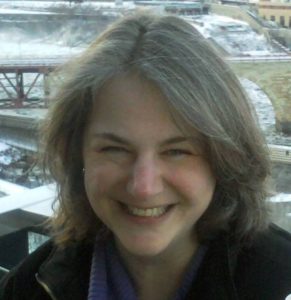
Whatever one’s connection to adoption, the realities are undeniably complex. Jews adopt at twice the rate of the general public, and have been more likely to adopt transracially … but Jewish adoptees face unique struggles in our communities. There are notable examples of adoption in Torah … yet the institution is in many ways alien to our tradition. A number of recent books (e.g. American Baby) and documentaries (e.g.Three Identical Strangers) unveil a disturbing history of adoption practices in America and in our community in the mid-twentieth century. In this class, we will follow multiple threads of ethical inquiry to consider (1) how modern Jewish history and culture may have contributed to (witting) institutional and (largely unwitting) personal complicity in those dubious practices; (2) what positive changes have occurred in the world of adoption since; and (3) what remnants, new variations or even ethically-complicated reversals of earlier practices remain. While looking at the privilege of parenting through the lens of race and class, we will explore how Jewish tradition, ethical thought, and lived experiences may guide us to a more ethical approach to adoption, and an ethic of care for all who are or may be touched by it.
- Contemporary Issues
- History and Culture
- Suited for Teens
Capacity- 25
Minna will be teaching:
Tuesdays- 8 pm- 9:30 pm
Thursdays- 8 pm- 9:30 pm
Minna Scherlinder Morse is a writer and editor based in Washington, DC, a Reconstructionist “rebbitzin,” and the adoptive mom of two children of color (now 16 and 12). She is currently pursuing a graduate certificate in Jewish Ethics and Social Justice at JTS, with a personal focus on adoption ethics. She currently serves on the Jews of Color and Allies Advisory Committee at Reconstructing Judaism, and has in years past served on the advisory board of the Adoption and Jewish Identity Project and in leadership with the Jewish Multiracial Network.
Shmitah and Intersectionality: The 100% solution, David Seidenberg
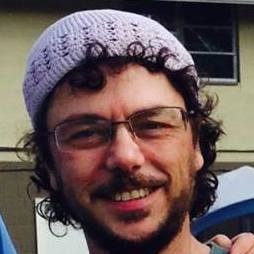
Our ancestors understood that agriculture can become the ultimate sacrament of service to the land, or the ultimate sacrilege that desecrates the land and destroys those living on it. The Torah presents Shmitah, the Sabbatical year, as the way to turn agriculture into that true sacrament – an ultimate solution to hunger, poverty, classism, xenophobia and environmental degradation, and to protecting habitat, human rights, and animal rights. As the ultimate plan for a liberation that is intersectional, equitable and comprehensive, Shmitah represents a path to creating a society that respects rights for every being and protects the health and abundance of the land. On a mythic level, Shmitah also aims to fix the first sin against the Trees of the garden of Eden that is for us the origin of all inequalities and oppressions. More than this, the Torah’s highest goal and the purpose of the Sinai covenant is to create a society able to observe Shmitah. After grounding ourselves deeply in the Torah texts about Shmitah, we will explore these issues one-by-one and in relation to reach other. We will also use our experiences of Shabbat (and of stopping during COVID) to help us imagine what Shmitah can become for civilization today.
- Contemporary Issues
- Religious Life and/or Observances
- Spirituality
- Text Study for Everyone
- Intermediate Text Study
Capacity- 15
David will be teaching:
Tuesdays- 8 pm- 9:30 pm
Thursdays- 8 pm- 9:30 pm
Rabbi David Seidenberg is the creator of neohasid.org and the author of Kabbalah and Ecology: God’s Image in the More-Than-Human World. He first started researching Shmitah as a college freshman in 1982 and has been teaching seminars on Shmitah since 1993.






